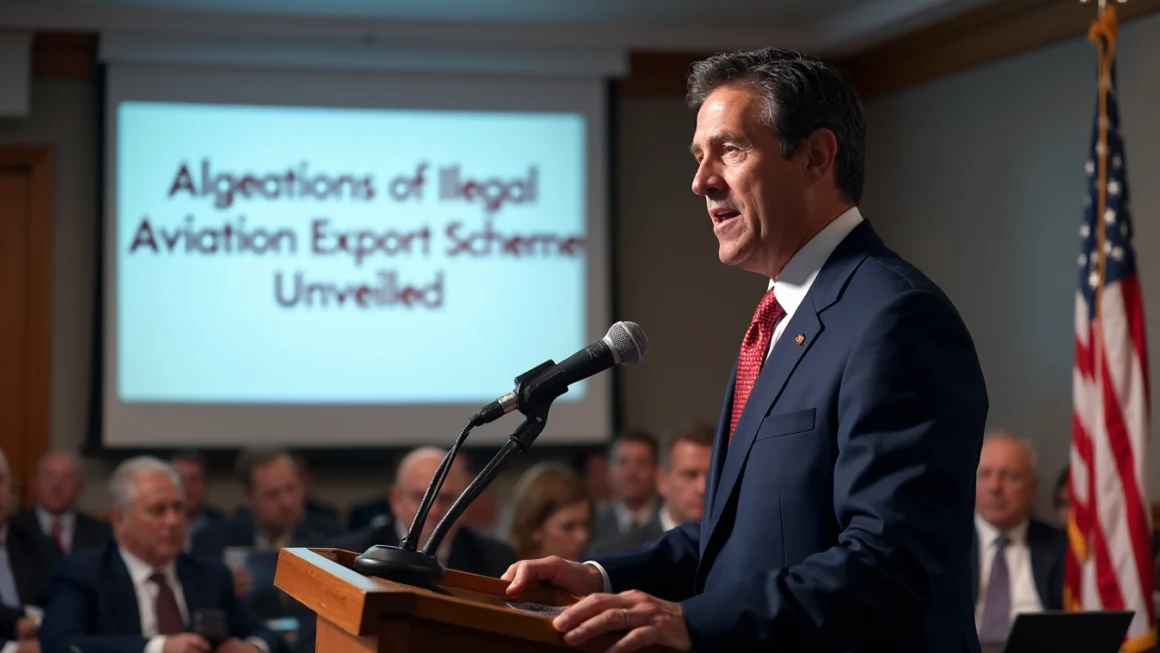Allegations of Illegal Aviation Component Export Scheme Unveiled
Table of Contents
In a significant development that has drawn international attention, the United States Department of Justice has announced charges against an Indian national for allegedly conspiring to illegally export aviation components to Russia. This case highlights the ongoing efforts by U.S. authorities to enforce export regulations and prevent the circumvention of sanctions.
The Accused and the Charges
Syyad Alibaig, a 32-year-old Indian citizen, stands accused of participating in a complex scheme to evade U.S. export laws. The indictment alleges that Alibaig, along with unnamed co-conspirators, attempted to procure and ship aircraft parts to Russia without obtaining the necessary licenses from the U.S. Department of Commerce.
The charges brought against Alibaig include:
- Conspiracy to violate the Export Control Reform Act (ECRA)
- Conspiracy to smuggle goods from the United States
- Entry of goods by means of false statements
The Alleged Scheme
According to the Department of Justice, the conspiracy operated between January and July 2023. During this period, Alibaig and his associates allegedly:
- Attempted to purchase sensitive aircraft components from U.S.-based companies
- Provided false information about the end-users of these components
- Planned to ship the items to Russia via third countries to avoid detection
This sophisticated operation underscores the challenges faced by regulatory authorities in preventing the illegal export of controlled items. Automation tools and advanced tracking systems are increasingly being employed to monitor and intercept such illicit transactions.
Implications of the Case
National Security Concerns
The alleged export of aviation components to Russia raises significant national security concerns. These parts could potentially be used to maintain or upgrade military aircraft, thereby undermining international efforts to limit Russia’s military capabilities, especially in light of ongoing geopolitical tensions.
Enforcement of Export Controls
This case demonstrates the U.S. government’s commitment to enforcing export control regulations. It serves as a stark reminder to individuals and companies about the severe consequences of violating these laws, which are designed to protect national security interests and maintain international stability.
International Cooperation
The successful identification and indictment of Alibaig likely involved cooperation between U.S. authorities and international partners. This collaboration is crucial in combating global networks engaged in illegal export activities.
Legal Proceedings and Potential Consequences
If convicted, Alibaig faces severe penalties:
- Up to 20 years in prison for violating the ECRA
- A maximum of 10 years for conspiracy to smuggle goods
- Additional fines and forfeiture of assets related to the alleged crimes
The case will be prosecuted by the U.S. Attorney’s Office for the Eastern District of New York, highlighting the seriousness with which federal authorities are treating this matter.
Broader Impact on International Trade
Scrutiny of Aviation Industry
This case is likely to lead to increased scrutiny of the aviation industry, particularly companies involved in the export of aircraft parts. Businesses may need to implement more rigorous compliance programs to ensure they are not inadvertently involved in illegal export schemes.
Diplomatic Repercussions
The involvement of an Indian national in a scheme to export sensitive components to Russia could have diplomatic implications. It may lead to discussions between the U.S., India, and Russia regarding export controls and the enforcement of international sanctions.
Conclusion
The indictment of Syyad Alibaig serves as a potent reminder of the complexities and risks associated with international trade in sensitive technologies. It underscores the need for vigilance, strict compliance with export regulations, and international cooperation to prevent the illegal transfer of potentially dangerous materials.
As this case progresses, it will undoubtedly be closely watched by legal experts, industry professionals, and policymakers alike. The outcome could have far-reaching implications for export control enforcement and international trade relations in an increasingly interconnected global economy.




